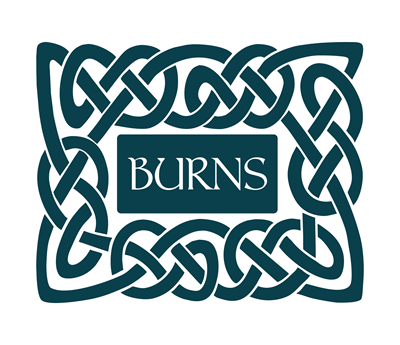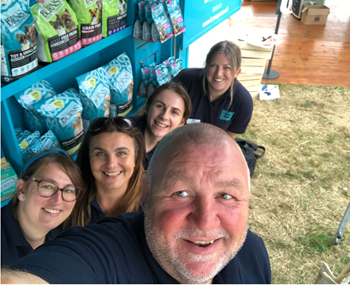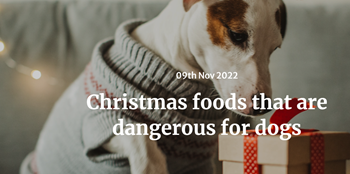Pet Parent Advice: Covid-19
So what exactly are you allowed to do with your pets during Covid-19? At Burns we make your pet welfare our business. We are getting a lot of enquiries about getting food to your pets as quickly as possible and are working around the clock to make this happen. One thing we are keen to do is share any UK government advice on how to care for your pets during this pandemic as we know it is a worrying time and people are unsure of what to do and when. So here is an easy to digest list of the latest Defra UK advice for pet parents and livestock keepers on maintaining the welfare of their animals during the Covid-19 lockdown period. This is in addition to the current guidance for people to stay at home and wash your hands before and after handling your animals and ensure you remain 2 metres away from other people. If the below tips are not enough and if you are too unwell to care for your animals and there is no one to help, you should call the Animal and Plant Health Agency (APHA) or your local authority. 1. Pets are not at risk of contracting Covid-19 At the moment, there is no evidence of coronavirus circulating in pets or other animals in the UK and nothing to suggest animals might transmit Covid-19 to humans. In line with the general UK advice on fighting coronavirus, you should wash your hands regularly, including before and after contact with animals. 2. Use a dog walker or walking network if you have symptoms Advice if you have symptoms of coronavirus and must remain at home for 7 days, or 14 days as a household. If your dog cannot exercise at home – say you have no garden for them to run around in, you should ask someone outside of your household to walk your dog for you. There are many schemes in the UK such as Borrow my Doggy you can look up on the internet or use your social network to find help. 3. Make sure any trips to the Vets are essential ones All non-essential trips to the Vets should be avoided such as nail clipping. If your pet needs urgent treatment, you must phone the vet to arrange the best approach to meet your pets’ needs. If you are unsure what is essential or non-essential you could ask one of our nutritionists for some advice on our Live Chat helpline on our burnspet.co.uk website. If your pet needs urgent treatment, you may take them, but must remember to wash your hands and remain 2 metres away from anyone outside your household. You must call the vet before going to see them. 4. If symptom free – exercise your dog once a day Defra guidelines say, pet parents may leave their house to exercise once a day and that you should combine this with walking your dog. In doing so, it is important that you minimise the time spent outside of the home and remain 2 metres away from anyone outside of your household. Guidance on green spaces are as follows: • stay local and use open spaces near to your home where possible – do not travel unnecessarily • you should only go outside alone or with members of your own household • keep at least 2 metres apart from anyone outside your household at all times • gatherings of more than two in parks or other public spaces have been banned and the police will enforce this • if you have a garden, make use of the space for exercise and fresh air • take hygiene precautions when you are outside, and wash your hands as soon as you are back indoor 5. Walk someone’s dog if they are vulnerable You can leave your home to care for or help a vulnerable person. This includes walking a dog for someone who is unable to leave their house because they are self-isolating or being shielded. Remember to wash hands before and after handling the dog and stay the safe 2 metres away from other people and animals, including when handing the dog to the owner. 6. Cat owners wash your hands too! It’s important to wash your hands before and after any contact with your feline friend as well as if you have any other pet or livestock. 7. If you have symptoms don’t visit your horse livery while self-isolating The guidelines say contact your yard manager or vet to make suitable welfare arrangements if you have symptoms and you need to visit your horse. If your horse needs urgent attention from a farrier phone the farrier to arrange the best approach to meet your horses’ needs. You and the farrier must ensure your 2 metres apart and wash your hands before and after contact with the horse. 8. With livestock get some help in if you have symptoms! If you have cattle, sheep, goats, pigs, poultry, or any other types of livestock arrange for someone else who is not self-isolating to care for your animals. 9. Without symptoms exercise once a day during the time you are providing care for your horse(s) or livestock. Stick to the once a day rule. Minimise the time spent outside of the home and remain 2 metres away from others. You should remember to wash your hands before and after contact with any animals. 10. Have fun with your pets indoors. We added this one ourselves, for ideas on what you can do to stay amused indoors during lockdown. Other ideas include enrichment toys like Kongs which can be filled with our Penlan wet food range and making puzzles for dogs to solve using old cardboard boxes and hiding treats inside. Our Nutritionist manager suggests… ‘Teach your dog a game of “hide & seek” by hiding his food or his favourite toy and then letting him search for it. Make sure you start off easy so that he understands the game and as he starts to get quicker at finding it you can make it more difficult. As well as a toy, you could hide a few kibbles or some of our Penlan Farm wet food in his Kong. This is also a great game to get your children involved in as they normally love hiding the things for him to find.’ Remember our dedicated team of Nutritionists are here to help with pet welfare enquiries on LiveChat and via info@burnspet.co.uk during this challenging time. Stay safe all.Visit the Burns Pet Nutrition Ltd website for more information on Pet Parent Advice: Covid-19




